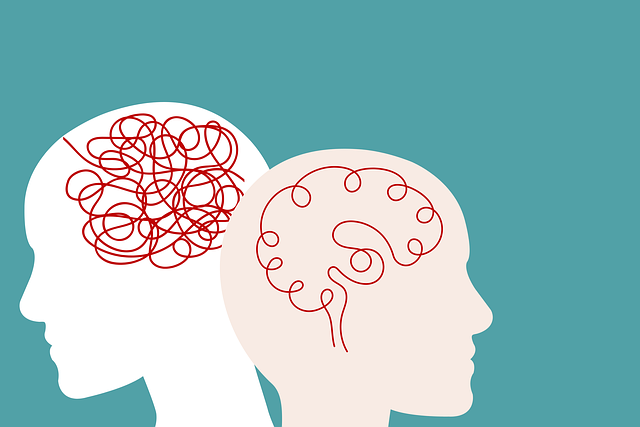Westminster Autism Spectrum Disorder (ASD) Therapy offers specialized programs focused on developing emotional intelligence (EI) for individuals with ASD, addressing challenges in social communication and emotional expression. Their tailored strategies include conflict resolution, positive thinking, self-awareness, emotion recognition, and mindfulness practices. Through these interventions, Westminster ASD Therapy equips participants with essential tools to manage emotions, connect with others, and enhance their overall well-being, fostering more inclusive social environments.
Emotional intelligence (EI) is a game-changer in navigating the complexities of human interactions, especially for individuals with autism spectrum disorder (ASD). This article explores the profound impact of EI development on ASD individuals, offering insights into their unique challenges and strengths. We delve into practical strategies to enhance emotional awareness and regulation, providing valuable tools for Westminster Autism Spectrum Disorder Therapy. By understanding and cultivating EI skills, individuals with ASD can thrive in daily life and social settings, fostering meaningful connections.
- Understanding Emotional Intelligence and Its Impact on Individuals with Autism Spectrum Disorder (ASD)
- Strategies to Enhance Emotional Awareness and Regulation for ASD Individuals
- Practical Application of Emotional Intelligence Skills in Daily Life and Social Settings
Understanding Emotional Intelligence and Its Impact on Individuals with Autism Spectrum Disorder (ASD)

Emotional intelligence (EQ) is a critical aspect of human interaction and well-being. It involves recognizing, understanding, and managing one’s own emotions, as well as empathizing with and responding to the emotions of others. For individuals with Autism Spectrum Disorder (ASD), developing emotional intelligence can be both challenging and profoundly beneficial. Many people on the ASD spectrum experience difficulties in social communication and emotional expression, which can impact their ability to navigate relationships and understand social cues.
Building emotional intelligence for those with ASD involves tailored strategies and supportive environments. Westminster Autism Spectrum Disorder Therapy offers specialized programs that teach conflict resolution techniques, promote positive thinking, and enhance mental wellness. Through these interventions, individuals with ASD can learn to identify and regulate their emotions, improve their ability to connect with others, and foster a deeper sense of self-awareness. The Mental Wellness Podcast Series Production can also play a role in educating and inspiring individuals on the spectrum to embrace emotional intelligence as a powerful tool for personal growth and inclusive participation in society.
Strategies to Enhance Emotional Awareness and Regulation for ASD Individuals

Building emotional intelligence is a crucial aspect of supporting individuals with Autism Spectrum Disorder (ASD). Westminster Autism Spectrum Disorder Therapy offers effective strategies to enhance emotional awareness and regulation, tailored to meet each person’s unique needs. One key approach involves teaching self-awareness techniques, such as recognizing and labeling emotions, which can be particularly beneficial for ASD individuals. This process encourages them to identify their feelings and understand the physical sensations associated with different emotional states.
Empathy building strategies are also integral to this process. Through role-playing exercises and social stories, individuals learn to recognize and respect others’ emotions, fostering a deeper understanding of social interactions. Additionally, stress management workshops organized by the therapy center equip participants with positive thinking techniques and mindfulness practices to cope with challenging situations. These tools empower ASD individuals to regulate their emotions more effectively, leading to improved overall well-being and better navigation of social environments.
Practical Application of Emotional Intelligence Skills in Daily Life and Social Settings

Emotional intelligence (EI) isn’t just a concept; it’s a powerful tool for navigating daily life and social interactions. At Westminster Autism Spectrum Disorder Therapy, we understand that cultivating EI skills can significantly enhance relationships and overall well-being. Our approach integrates both compassion cultivation practices and mind over matter principles to help individuals recognize and manage their emotions effectively.
This practical application extends beyond therapy sessions, empowering people with strategies to handle challenging situations, foster deeper connections, and provide trauma support services. Whether in personal relationships, at work, or within communities, EI skills allow for better communication, increased empathy, and improved conflict resolution. By leveraging these tools, individuals can create more positive and supportive environments, reflecting the transformative potential of emotional intelligence in our everyday lives.
Emotional intelligence, a key aspect of human connection, offers profound benefits for individuals with Autism Spectrum Disorder (ASD), as demonstrated by Westminster Autism Spectrum Disorder Therapy. By implementing the strategies outlined in this article—from enhancing emotional awareness to applying these skills daily—we can significantly support those on the autism spectrum. Through fostering emotional intelligence, we promote a deeper understanding of oneself and others, ultimately enriching social interactions and overall well-being.














